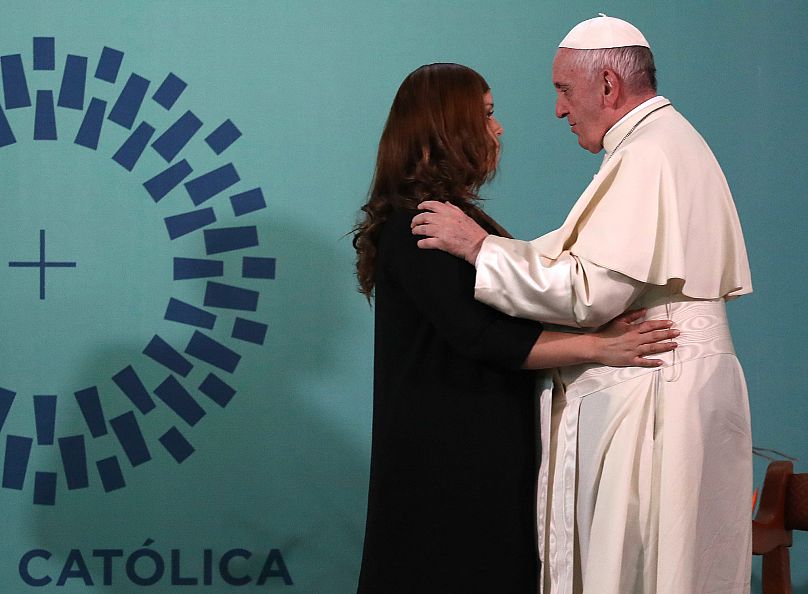Nicknamed the "Pope of the Poor," Pope Francis dedicated his pontificate to the most disadvantaged. However, analysts say there were very limited changes in the area of women's rights.
Committed to the poor, migrants, and the environment, Pope Francis devoted his pontificate to the most disadvantaged. But was he really that progressive?
The Argentine pontiff, who died on Easter Monday at the age of 88, dedicated his first visit to the Italian island of Lampedusa on 8 July 2013. On that occasion, he paid tribute to the migrants who had died in the Mediterranean and denounced "the globalisation of indifference" to their fate.
"He was a man of peace, a man for human dignity, and he always spoke out when people were mistreated and when migrants were scapegoated and demonised by forces that are no less present in this parliament", Evin Incir, a Swedish Social Democrat MEP (S&D), told Euronews.
Nicknamed the "Pope of the Poor," Francis had multiplied his actions in favour of people in need, inviting homeless people to dine at the Vatican and instituting a World Day of the Poor.
Very interested in economic issues, the head of the Church also denounced the "excesses of globalisation", finance that "tramples people underfoot," and "the new idolatry of money."
Ecology was at the heart of his pontificate, to which he dedicated his encyclical letter Laudato Si', published in 2015.
Human rights
In the field of minority rights and women's rights, the situation has not changed much.
While the head of the Church has opened the blessing of marriage to homosexual couples, the door to religious marriage remains closed to them.
Women's sexual and reproductive rights have been largely absent from his pontificate.
During a visit to Belgium, the Pope described abortion doctors as "hired killers" and compared abortion to homicide.
"He failed to see that restrictions on women's sexual and reproductive rights will not put an end to abortions. It will only make abortions dangerous and not accessible to all women," said Lina Gálvez, Spanish MEP (S&D).
"So he was a man who fought against a lot of inequalities, but it seems that these gender inequalities and this gap in women's rights were not in his mind," she adds.
Although he put forward women in the Vatican, they are still excluded from the priesthood. MEP Lina Gálvez does not hesitate to speak of a "missed opportunity."
The question remains: was he unable, or unwilling, to reform the Church in depth?












